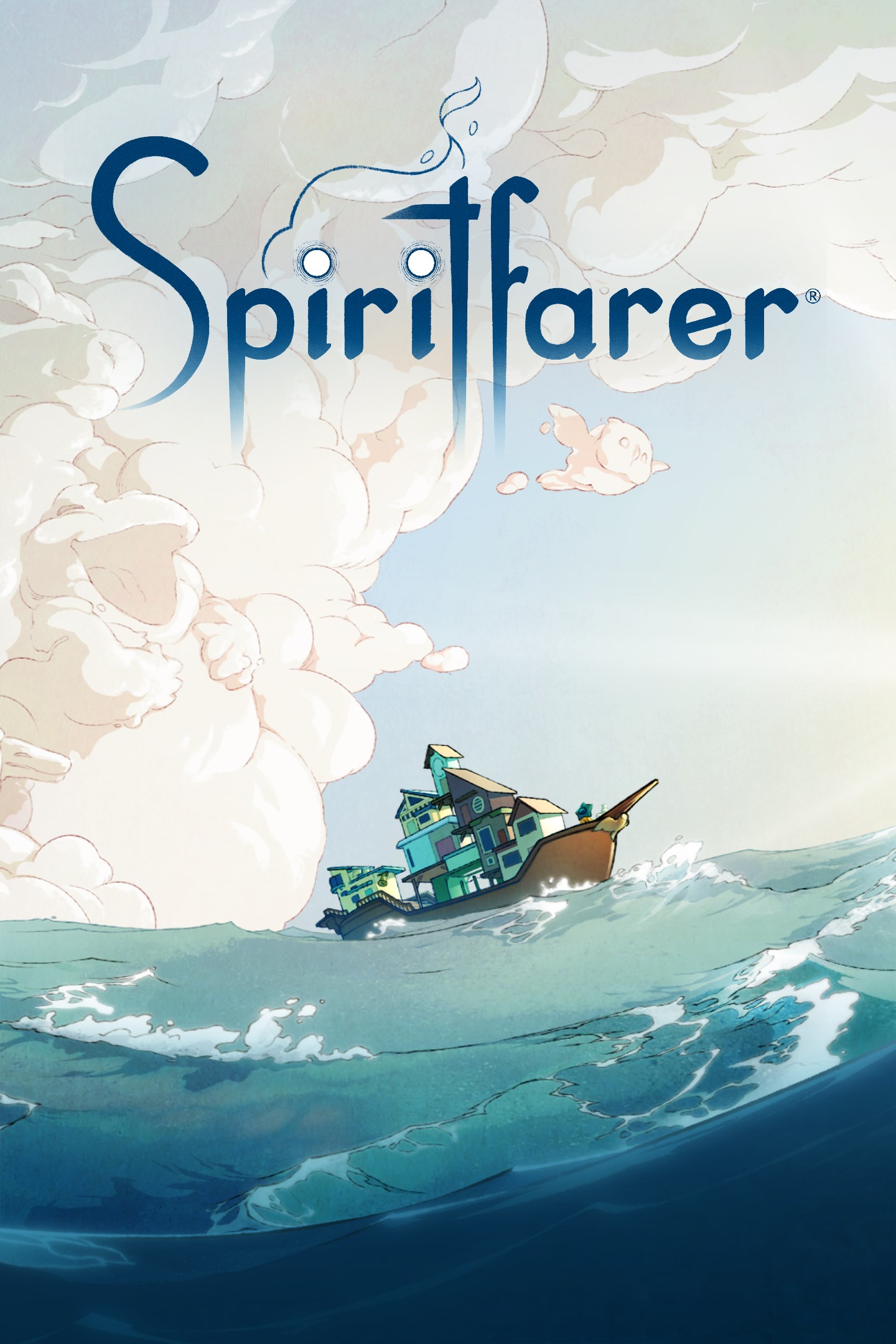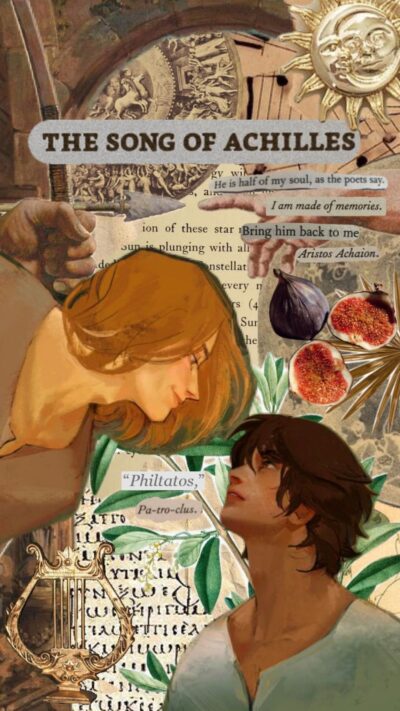My Experience
I am not sure who or what specifically introduced me to the game Spiritfarer, however I can guess that I found the game through “Cozy Gaming” content creators on TikTok. I had always assumed gaming was not for me because I was not interested in first person shooter games or games that heavily center combat and I was not aware of the subgenre of cozy gaming until the topic came up on my For You page on TikTok. I began seeking out creators who recommended games that center storytelling and easy game mechanics so I could enjoy games at my own pace with minimal experience in gaming.
Spiritfarer was one of the first cozy games I played, and I became OBSESSED almost immediately. The graphics were gorgeous, and the story was heartbreaking from the start, as we meet the character we play as after she passes away at a seemingly young age. We then are introduced to the objective of the game, our character is set to replace the current spirit farer after he retires, and it is now our responsibility to ferry spirits into the afterlife and help them through varying conflicts along the way until they feel they can comfortably pass on. Nothing could have prepared me for how invested I became into the lives and deaths of these characters. Every character I helped has their own interesting story that connects the player to them and made me want to help them. Even the characters I don’t morally agree with have reasons for why they did things or acted a certain way that helps humanize them. For example, one of the characters cheated on his wife repeatedly throughout life and death, an act I will never understand or try to justify, but as my character brought him to cross over all he could talk about was her. How much he loved her and how the people you love never really leave. Right before he departs, he tells the player “I regret nothing. Nothing but leaving Astrid. Nothing but leaving you.” I will never try to rationalize his actions or his thoughts, but hearing his speech before he left about love and life humanized a character, I had previously hated in a way I did not think was possible.
I cried every single time one of my characters realized they were ready to cross over. I spent so much time helping them work through dilemmas from their life and after, feeding them, going on adventures to learn more about them and it took a lot to come to terms with the fact that I would have to let them go because that was what was best for them. And the conversations I had with the characters while taking them to crossover were heart shattering. Right before they cross on, I take them from the main boat where everyone stays onto a smaller boat where I row them to the Everdoor where they cross over. On the ride over the one-on-one conversation usually consists of them recounting their life, what they wish they had done differently, what they are proud of, and the people they loved most. I am tearing up while writing this in public. One of my favorite characters, Alice, had what I thought was the most heartbreaking final dialogue. While she is on the boat, she slowly begins to lose her memory, showing signs of Alzheimer’s, and begins calling the player by her daughter’s name. Right before she leaves, she says “Maybe Eugene will… …. When you see your father, tell him about the trees, won’t you? I’m sure he’ll be excited to come with us next year.”, referencing the trees around the Everdoor believing it was a nature spot her daughter had found. It brings me comfort that in her final moments she was comforted by the thought of travelling with her husband and children. Oh, and it also ripped my heart out of my body and stomped on it but that’s beside the point. Throughout the story, the player takes on this maternal/leader position that helps you connect with each character’s story no matter if you relate to it or not.
Classifying My Experience
My experiences probably range past anything I am able to categorize. The acceptance of loss plays a massive role in the story, originally having to come to terms with the fact that every character you interact with is dead, then having to come to terms with them crossing over. They feel like their own individual losses that compound and make the experience sadder but weirdly better. There is also one specific story where I understood that my original feeling was wrong. There is a formerly married couple on the ship where the husband cheated, and originally, I was mad at the wife for forgiving him and still loving him, however, I came to put aside whatever moral superiority I felt that made me madder at her than at him and realized that she was simply a woman trying to love a man despite his shortcomings, which is something women are conditioned to do from birth. This led into generous love for the man, because despite my initial anger I still tried to love him for who he was and the traits she loved about him, so I could understand her better.
The amount of love I have for every character in this game cannot be described in words or within a sensible amount of time, but I need to acknowledge how much love was and is there. Released emotion brake is going to be rough to explain, but allowing myself to feel grief for these characters and their stories allowed me to feel grief in a way I had never allowed myself since I have been lucky enough to never personally lose someone. Before, I had never let myself grieve because I never felt like I had earned it. Togetherness was also apparent as we all lived on one ship, and I was dealing with people’s problems/happiness/questions simultaneously and even without my interference the characters sometimes interacted and grew connections with each other.
Features Prompting My Experience
My experience was prompted by the culmination of stories and my firsthand experience navigating other people’s love, pain, hopelessness, and millions of other emotions that the game developers managed to fit into a finite number of stories. My role as a guide through the afterlife helped me look at differing stories in a new light that largely existed outside of my moral judgement (though of course it did slip in at times) and helped me be impartial at times where characters largely just needed guidance or a friend. Knowing that I had so much power over the characters and how they felt (though not through actual gameplay mechanics) made me much softer and more understanding than usual. I wanted to care more about the person and helping them cross over instead of passing my own moral judgements so I could understand their story to the best of my ability and be as helpful as possible in their final moments. There were two characters in particular that I could not stand, Bruce and Mickey. They are brothers with Bruce being the brains and the mouthpiece while Mickey is the muscle. Bruce is consistently rude throughout their stay on the boat which makes it easy to dislike him, but eventually you start to understand his anger and snippy comments when you realize that he is coping with the fact that his brother is not really there, “More importantly, I can’t see a life beyond my brother. If he goes, I go. … Funny thing is… He went a long time ago. I just didn’t want to admit it to myself.”
Narrative Technology
Narration
The camera angle throughout the story is in third person, but it zooms in during important moments, like hugs when the characters are crossing over. This emphasizes the importance of these moments and helps the player better understand how gut wrenching the moment truly is. It emphasizes the emotion and the love in someone’s final moments and how important the role of the spirit farer is when helping people move on. The role is not just physical, but also emotional and it takes a special person to fill the role, like the character we play as. The music is also very calming, trying to help the player focus on the missions and emotional connections instead of outside factors. It is hard to pair narrative technology with this game as the character we play as never speaks, so I will not state one as I do not see one that matches the story I chose.
Storyworld
The opportunity to observe feels like a massive part of my story since the player is privy to so many different situations and different people that deal with those situations in their own way. The diversity among the characters helps with the diversity of the stories told. One minute you’re helping an old friend deal with her past mistakes, next you’re helping a notorious art collector perfect his collection, and after that you’re helping a young boy cope with the awful things that happened in his short life. It is truly a whirlwind of emotions, stories, and experiences.
Plot
The cheating man I mentioned earlier does apologize for his wrongful actions, both in ways I assumed were sincere and not, but no matter my moral standing he apologized multiple times. He tried to apologize to the woman he cheated on, which worked sometimes and not others, and he apologized to my character before he crossed over, acknowledging he was not a perfect person while saying he truly did love his wife, like my character would be making his final judgement, or he wanted at least someone to believe what he was saying before he left. Grief releaser is the entire point of the game I played. You spend the entire time grieving someone, including yourself at times, and even after you are “done” you continue to grieve because of the profound impact the characters had on you.
Partial dopamine also feels important because you crossed so many people over and helped them release both positive and negative emotions so they could truly be free, but the weight of those people’s memories is so heavy personally that it only feels partially good.
Character
Again, opportunity to observe and pivot to positive emotion are basically the player character’s entire purpose. We help characters, when necessary, but we mainly listen as they work through personal things then help them cross over when the time is right. Like this monologue from a character named Gwen who mainly talked about family and internal struggles holding her back,
“Seems I couldn’t escape it, doesn’t it? Me being here, now. You know me, I’ve never been one to dwell on the past. Mainly because it always felt overwhelming to me. Like an irrepressible wave of resentment. But even at this very moment, I still wonder. I don’t know if I ever tried to connect. And I’ve been so sure of it. My opinion just never changed. …. You know what I’ve always said. That people come and go, but don’t pay attention to each other. They never really did. That lives are only ever parallel. Adjacent at best. Well. That’s bullshit. … I can see that now. And you’re the proof of it. And not just you, but Mum cared, as well. In her own way. And others here, even given the circumstances. I still don’t know about Father. I should probably forgive him now. Find that last shred of strength left in me. Would that make me a better person? Would that make a difference? Maybe. But after all this… I don’t think I care. And it doesn’t matter.”
Guilt lifter also feels important as the player character’s role is to continue grieving and helping one after the other. They continue to grieve by helping others and thus creates thus creates a cycle of turning their grief of previous characters into helping others and the cycle continues.
Featured Image
Poster for Spiritfarer published and developed by Thunder Lotus Games. All rights reserved.




